Given that fighting al-Shabab does little to advance Somalia’s state-building, other approaches need pursuing.
Al-Shabab’s attack on the presidential palace in Mogadishu on July 8 is the latest in a string of violent assaults that have afflicted Somalia and neighboring countries. The militant Islamist group’s ability to penetrate the heavily fortified presidential complex is a testimony to the movement’s potency to disrupt reconstruction efforts of the Federal Government of Somalia (FGS).
This is particularly striking against the backdrop of enhanced security precautions the FGS had recently taken, and the military offensive the African Union Mission in Somalia (AMISOM) and Somali National Army (SNA) had launched on March 5. As with the assault on Nairobi’s Westgate shopping mall in September 2013, there is a risk that al-Shabab’s “Ramadan offensive” will trigger a predominantly military response by the FGS and its international allies.
Distortion at Play
However, as argued in a study by the Life and Peace Institute, dividing Somali political actors into a binary dichotomy of extremists and moderates has produced a distorted understanding of the conflict. Partly rooted in the prevailing counterterrorism narrative, this distortion goes in tandem with a one-sided perception of al-Shabab. Yet as rightly pointed out by the International Crisis Group’s latest policy briefing on Somalia, the group is multifaceted and constitutes much more than an armed insurgency. Unfortunately, simplistic portrayals of both the Somali conflict and its most prominent fomenter have significantly hampered the country’s prospects for conflict resolution and state-building.
Simultaneously, there is another distortion at play when it comes to al-Shabab, namely the ubiquitous proposition that the Islamist movement constitutes the greatest challenge to peace and stability in Somalia. However, this is questionable for two reasons.
First, at the grassroots, al-Shabab offers practical solutions and benefits for numerous communities, including the mediating of clan disputes, establishing local governance arrangements and providing basic services. Second, despite popular claims to the contrary, defeating al-Shabab is not a precondition for advancing Somalia’s state-building project. For one, a victory over the extremist movement is likely to catalyze local clan disputes. For another, the historic track record of state-building shows that the creation of governance structures has, for better or for worse, generally been accompanied by violent contestation, particularly during early phases.
Somalia’s obstacles toward peace, stability and prosperity lie beyond the challenge posed by al-Shabab. Just as has been acknowledged in the case of pirates, the Islamist movement constitutes more of a symptom of underlying discrepancies rather than an insurmountable core problem in and of itself. Consequently, the FGS and its international backers should not exhaust themselves and their scarce resources in hopeless military operations against al-Shabab which, if anything, have encouraged it. President Hassan Sheikh Mohamud and the international community should consider devoting more attention toward tackling Somalia’s more fundamental problems, which would allow them to kill two birds with one stone: rebuilding a functioning state and, thereby, draining al-Shabab of its fertile soil.
Somalia’s Real Challenges
There are four key challenges facing Somalia. First, the fragmentation of clans not only challenges prospects for peace and stability in the country, but also provides fertile soil for al-Shabab. That this dynamic has seen a revival with the rolling out of a federal agenda is evidenced by the increasing tribal tensions in southern Somalia. Rather than curbing such fragmentation, the military advances against al-Shabab appear to have furthered it by establishing a power vacuum. While al-Shabab has frequently exploited resulting clan competition to its own benefit, such fragmentation is poisonous for Somalia’s state-building endeavor. Hence, the FGS needs to successfully forge social cohesion on a national scale, if it wants to establish peace and stability.
If the Somali government and the international donor community continue to remain largely unable to reduce the multitude of risks the Somali population faces, the objective of building a viable state and defeating al-Shabab will remain a distant dream.
Second, the FGS needs to come to grips with the lack of a political vision. As of today, the government has failed to put forth a tangible plan on how to move forward in newly liberated areas or with regard to federalism. Against the backdrop of remaining social fault lines involving clan identity, the recommendation of “facilitating local clan dialogue and reconciliation” is generally advanced. Yet its relevance is not only questionable in an environment of constantly shifting alliances, but it is also backward-looking and divisive in nature. What the FGS needs to come up with is a common vision that paints a tangible and realistic picture of the future. Such a vision could bridge clan divides, implement a political agenda for action, and provide an ideological framework that allows the FGS to mobilize popular support for state-building and, therefore, challenging al-Shabab’s hegemony in terms of vision.
Third, a fundamental obstacle lies in the void of local administrations. For one, the absence of formal administrative structures has provided al-Shabab with the possibility to fill this gap. This has not only allowed the extremist movement to establish its presence in rural areas for the past decade. It has also enabled al-Shabab to become part and parcel of political governance at the grassroots level. For another, it has deprived the FGS of the ability to control territory, provide basic services and gain traction among local constituencies. The arrival of ill-disciplined SNA troops and corrupt government officials in newly liberated areas soured rather than watered the population’s appetite for central government control. Therefore, the challenge of setting up functioning administrative structures needs to be embraced, in order to defeat al-Shabab and build a viable state.
Fourth, the FGS must tackle concerns combating poverty, reducing vulnerability and providing livelihoods by creating employment opportunities. While poverty remains endemic, warnings of famine are once again on the rise. Yet creating loyal fellowship for its state-building project will be hardly possible in the absence of tangible improvements to popular livelihoods. Similarly, it seems next to impossible to create an engaged citizenship, without a productive economy and the ability for popular taxation.
If the Somali government and the international donor community continue to remain largely unable to reduce the multitude of risks the Somali population faces, the objective of building a viable state and defeating al-Shabab will remain a distant dream.
Going Beyond Military Approaches
Clearly, insofar as al-Shabab is an insurgency movement, it needs to be countered militarily. However, this should not lead the FGS and its international partners to become “locked” in a military response. Not only do continued military campaigns against al-Shabab provide it with nurturing grounds, but they also divert attention from the underlying challenges for peace and prosperity in Somalia. Frequently heeded calls for “political inclusion” of the extremist movement are questionable. Not only do both sides of the table contain elements who reject political dialogue, but such a solution maintains the focus on al-Shabab as the primary hindrance to stability and development in Somalia. Yet as this seems to be far from the truth, al-Shabab should be given less rather than more attention.
Given that fighting al-Shabab militarily does little to advance the fate of the Somali population and the FGS’ state-building project, other approaches need to be found. The most promising way forward appears to be a strategy that hones in on building a functioning state apparatus which, by consequence, renders organizations such as al-Shabab irrelevant to the local populace. This is a long-term and difficult endeavor. Yet the FGS and the international donor community should consider such a strategic shift before President Mohamud’s term is up, and his empty-handedness triggers the international community’s retreat from Somalia.
The views expressed in this article are the author’s own and do not necessarily reflect Fair Observer’s editorial policy.
Support Fair Observer
We rely on your support for our independence, diversity and quality.
For more than 10 years, Fair Observer has been free, fair and independent. No billionaire owns us, no advertisers control us. We are a reader-supported nonprofit. Unlike many other publications, we keep our content free for readers regardless of where they live or whether they can afford to pay. We have no paywalls and no ads.
In the post-truth era of fake news, echo chambers and filter bubbles, we publish a plurality of perspectives from around the world. Anyone can publish with us, but everyone goes through a rigorous editorial process. So, you get fact-checked, well-reasoned content instead of noise.
We publish 2,500+ voices from 90+ countries. We also conduct education and training programs
on subjects ranging from digital media and journalism to writing and critical thinking. This
doesn’t come cheap. Servers, editors, trainers and web developers cost
money.
Please consider supporting us on a regular basis as a recurring donor or a
sustaining member.
Will you support FO’s journalism?
We rely on your support for our independence, diversity and quality.





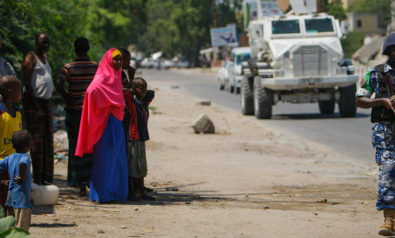
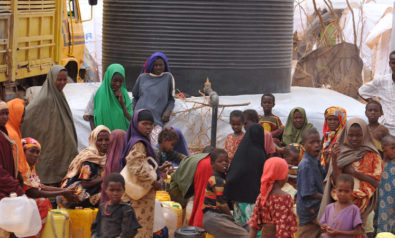

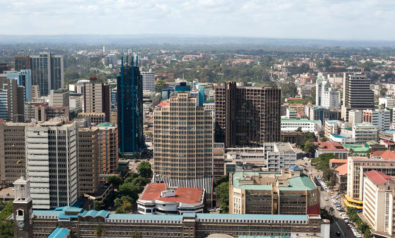
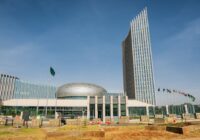
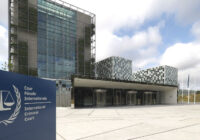
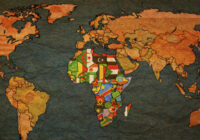

Comment
the author knows a lot about where somalia’s problem lies than most of our politicians including the President himself…corruption and federalism can not be implemented without a strong central government that holds a grip of every area that is under its control otherwise clans will fight over domination. unfortunately the four points that Mr.DOMINIK BALTHASAR underlined are not the aims of leaders. they sole aim is to suck the few pennies that come in their way. i feel for my people most of them dont see the bigger picture.
Mogadishu, Somalia
Correction: Corrupt and clan fighting